Ken Baker was waiting for a check to arrive in the mail for his new home as part of a settlement after his Paradise, California, home burned in the Camp Fire in 2018.
But that check won’t reach its destination.
“The address it was supposed to go to is no longer there,” Baker said.
In a painful bit of deja vu, the new home burned down in the Park Fire on July 25. Some of Baker’s family members watched the Ring camera feed until the flames were out.
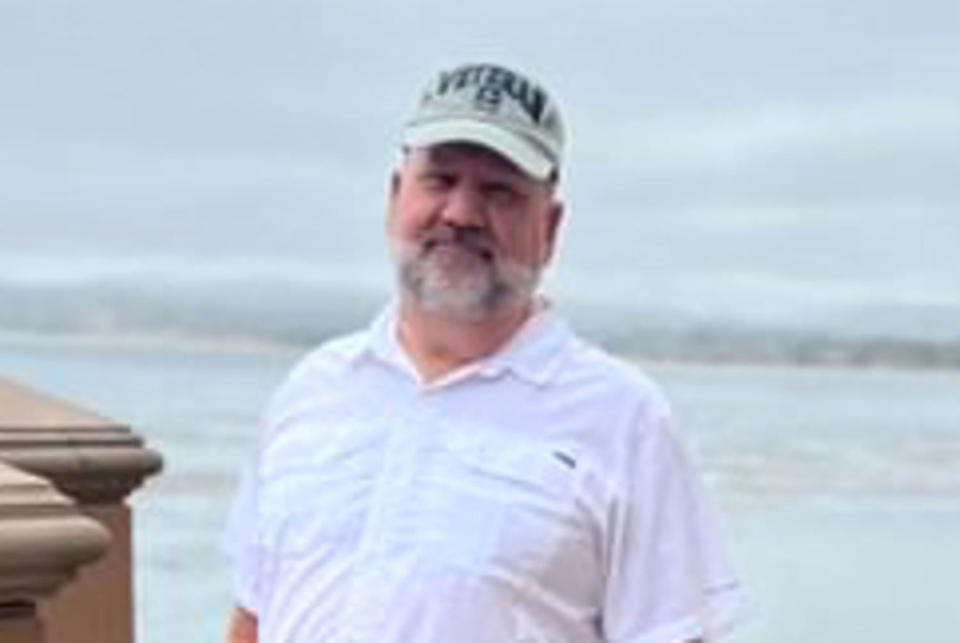
Baker and his wife, Sylvia, settled in Cohasset, a rural community of homes scattered along winding forest roads about five miles from Paradise. Now they are staying in their son’s spare bedroom in Paradise, figuring out how to rebuild for the second time in six years.
“It’s scary,” he said, identifying with the Greek myth of Sisyphus. “To roll it down a hill and watch it roll back down again.”
The Park Fire is the fourth largest in California history, and Baker is not the only person to lose a second home. Three other Camp Fire victims told NBC News similar stories of overlapping losses.


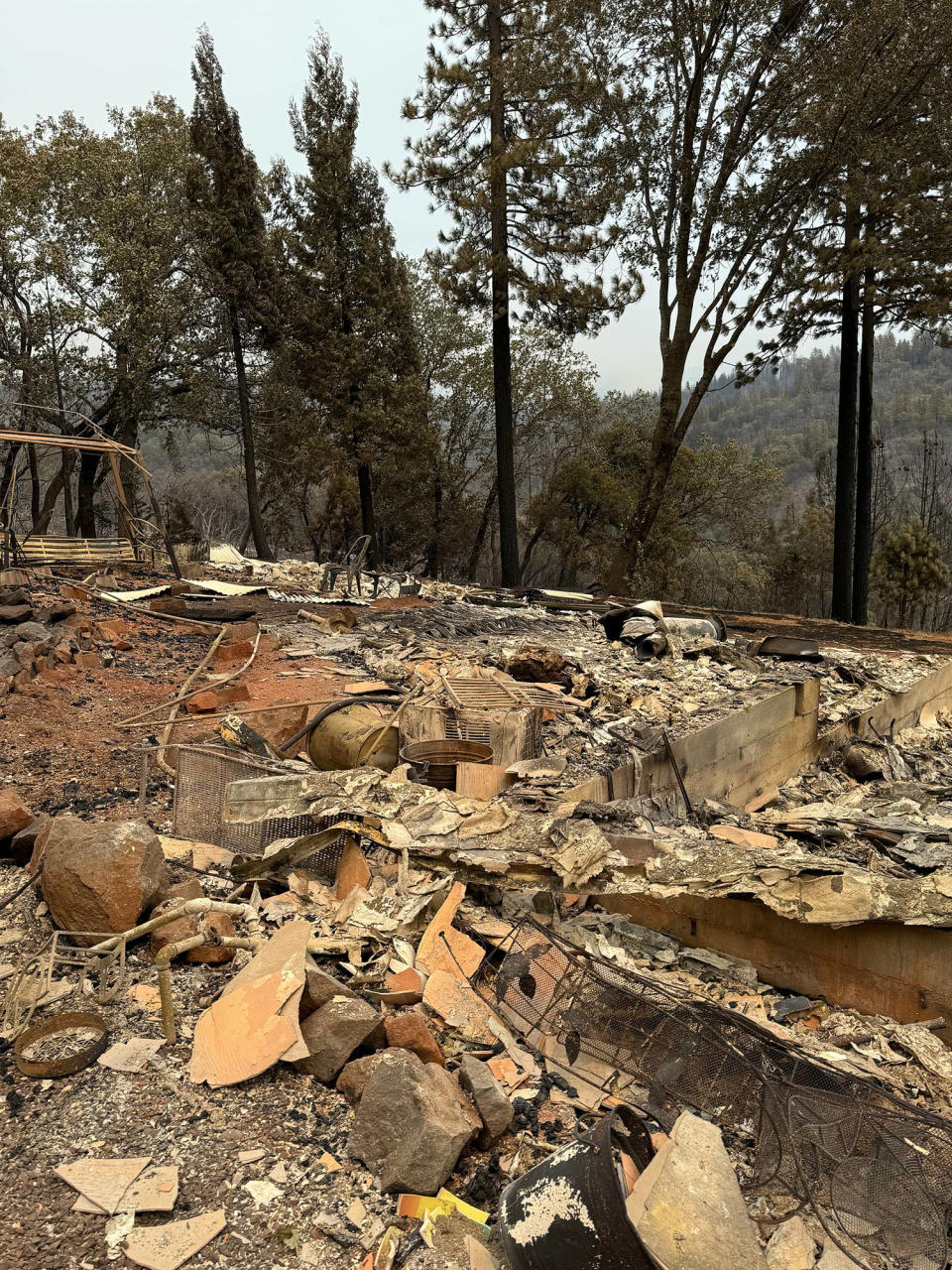

“We had peace. We had space,” Michael Daneau said, adding that he and his wife, Kristy, are finally settling into Cohasset. “It’s gone again. There’s no way we’re going to figure out how to get through this right now, other than staying positive and being with our family and group of friends.”
The families’ stories show how risky and challenging things can be for those whose lives are rooted in fire-prone areas of California, as devastating wildfires become more severe and frequent due to climate change and forest management issues.
They also show that these losses can be compounded and cyclical: Several families said their displacement in the Camp Fire left them in a difficult housing market, with little choice but to settle in a wildfire-prone community. Others made efforts to retrofit their new homes against the wildfires, but it wasn’t enough.
The Camp Fire, which raged for weeks in November 2018, killed 85 people and destroyed more than 13,500 homes.
Rick Pero narrowly escaped with his wife Lisa Stone. They both tried to get out as quickly as they could, but their skittish cat CatMandu was racing around their Paradise home.
“We didn’t have eight minutes,” Pero said.
The couple soon found themselves, along with CatMandu, in a group of about 20 vehicles surrounded by flames — some with melted side panels. A fire truck used a water cannon and a fire hydrant to extinguish the group.
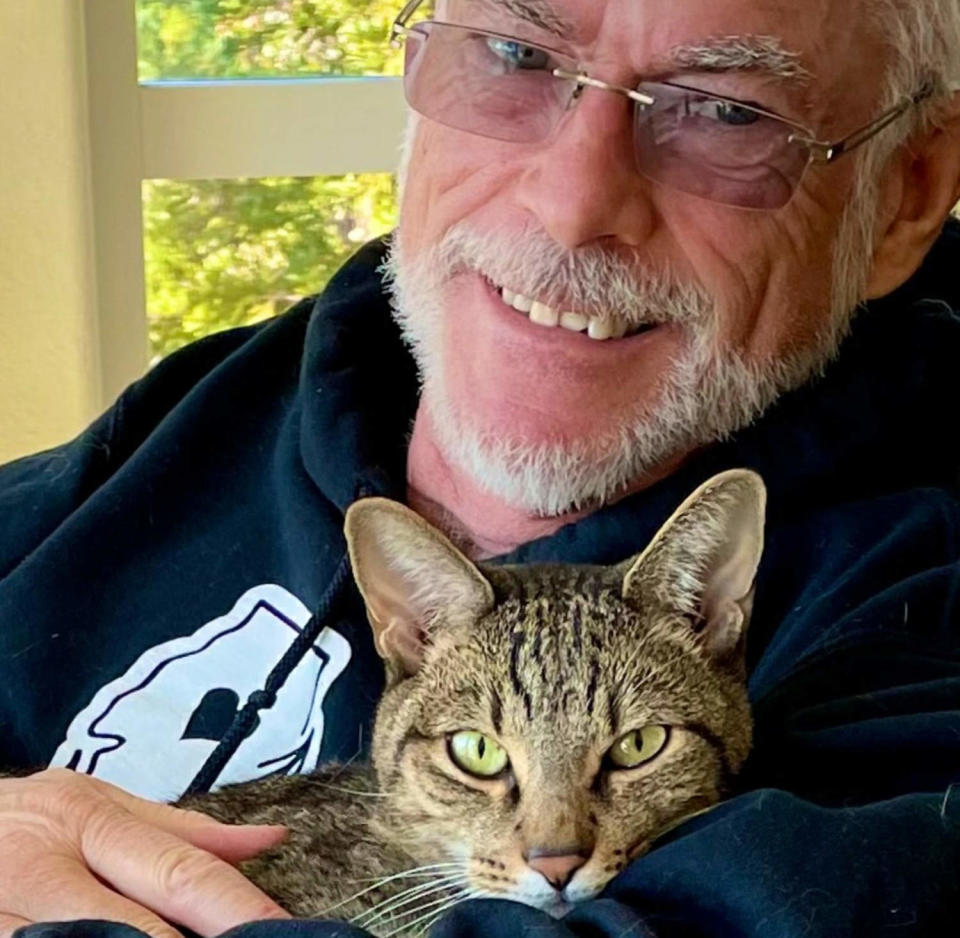

“Transformers and propane tanks were exploding. Houses were burning around us,” Pero said.
They finally reached a grocery store parking lot and when conditions improved, they set off with the caravan.
About a year later, Pero and Stone, now 70, settled in an area called Forest Ranch, just east of Cohasset. He became chairman of the neighborhood’s wildfire mitigation committee.
Every year, he would bring in hundreds of goats to chew on the firebreak around the neighborhood. Pero would cut down brush—”ladder fuels”—to create a 40-foot buffer of “defensible space” around his property and build a fire road for truck access.
“We had a wonderful, incredible view 365 days a year — the sunset. It was truly a gift,” Pero said.
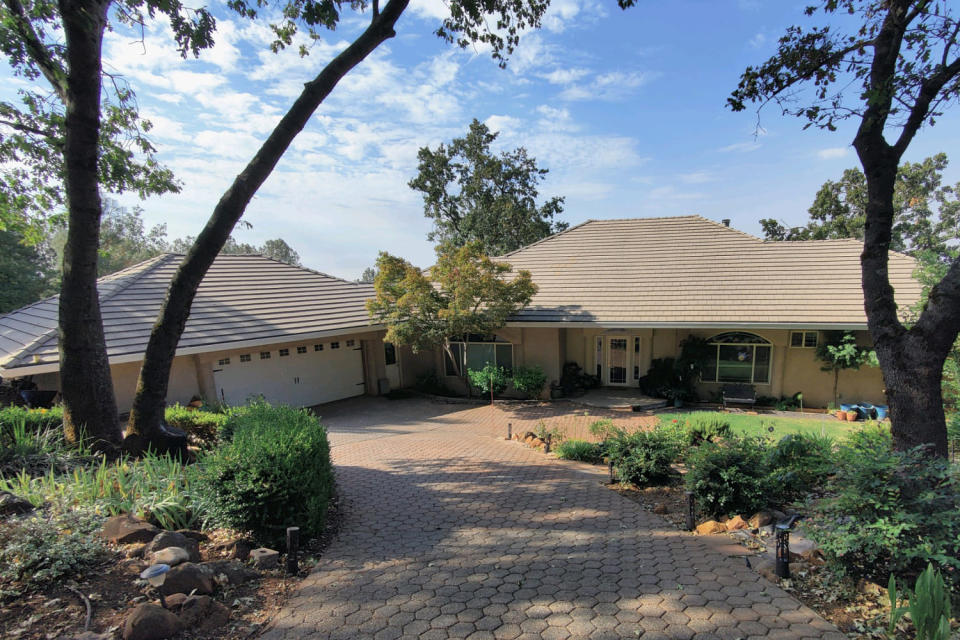

He was in Mexico when the Park Fire broke out. The cat keeper was unable to contain CatMandu when evacuation orders came.
Pero later visited his razed property and found CatMandu’s remains in his usual hiding place – under the red TV couch. Pero buried his precious pet near the house, which was one of only three houses in the 28-home neighborhood that burned.
“We miss the loving cat, the hug in our arms,” Pero said, his throat catching. “I used to sing to him while we ate.”
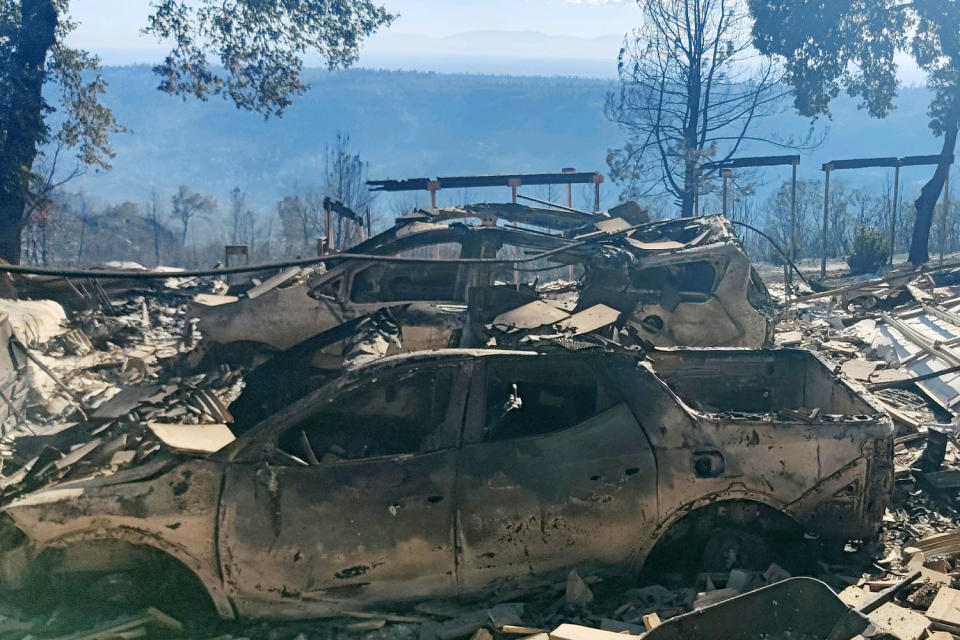

The Daneau family — Michael, Kristy and their four daughters — were scattered across Paradise when the Camp Fire evacuation notice came, fleeing separately to friends, family or strangers. Michael frantically answered their calls.
At one point, he lost contact with Kristy, who was staying at an elementary school to help disabled students get to safety; when their phones reconnected, Michael remained on the phone as Kristy walked through the flames.
When they finally found each other, Daneau said, they realized one thing: “We’re homeless now.”
The Daneaus and their four dogs spent three weeks in a hotel, then two months in a fifth-wheel camper in a parking lot near the airport in Chico, Calif. The roof was leaking.
“Tensions were high, to say the least,” Daneau said.
The couple received a fire insurance payout and bid on a dozen homes, but lost. As tens of thousands of people were displaced by the fire, survivors scrambled to find housing.
“That’s what led us to Cohasset,” Daneau said. “We said absolutely not, we’re not going into a fire zone. We weren’t forced into it, but our only option was to stay in the fifth wheel.”
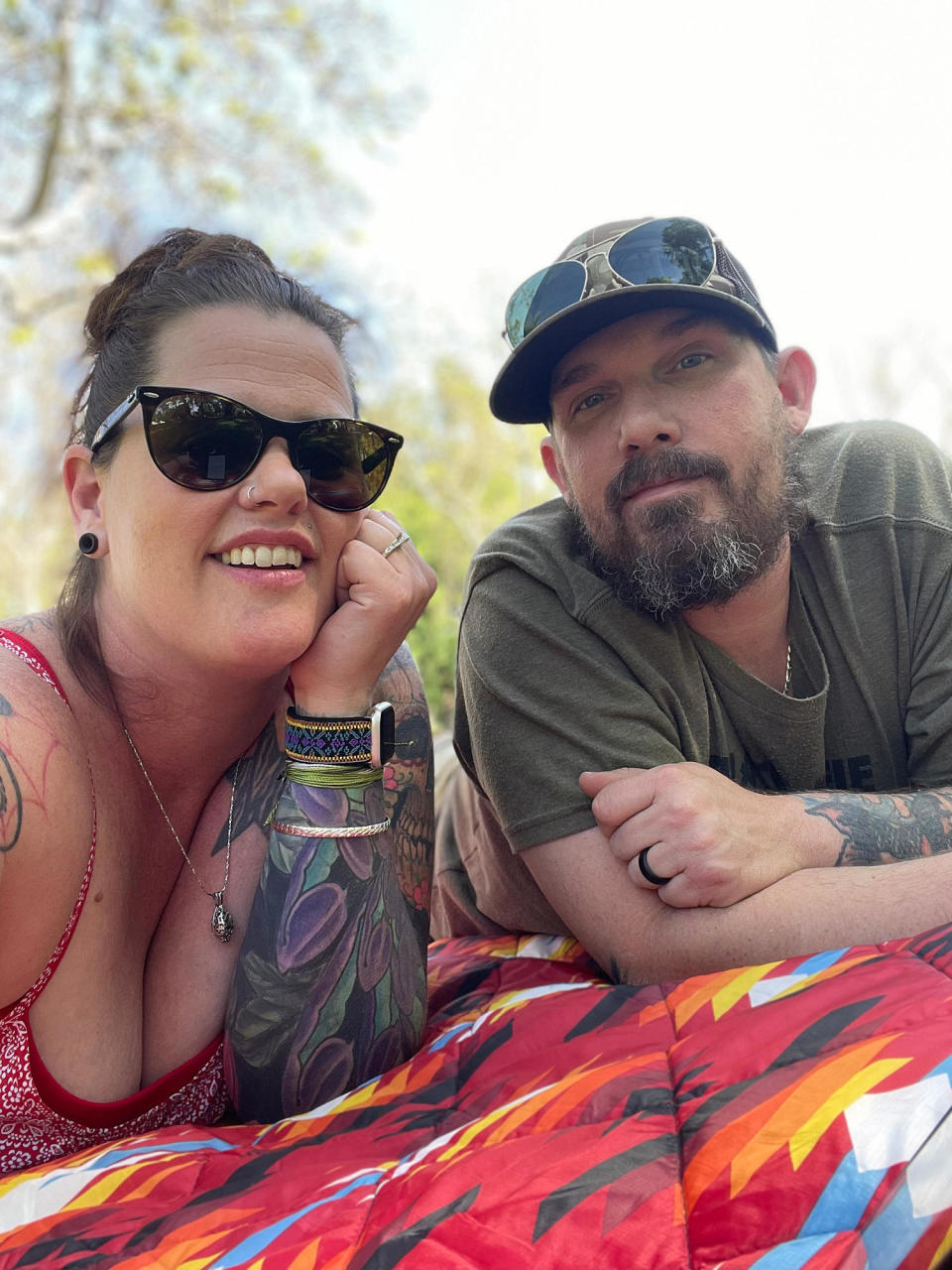

In Cohasset, a man put his home up for sale with certain conditions: The buyer had to be a family that survived the Camp Fire.
“Everything was rainy and beautiful and green. The cedar trees were alive. You could smell the pines,” Daneau said. “My wife fell in love.”
The seller listed the house with them for $10,000 less than the price they offered.
Authorities say the Park Fire started July 24 when a man pushed a burning car into a ditch in a Chico city park. By that afternoon, temperatures had reached 106 degrees Fahrenheit. The car ignited vegetation, and the fire spread to more than 70,000 acres in about 24 hours.
The fire also reached parts of Cohasset that same evening.
Michael and Kristy Daneau set out with their youngest daughter, now 17, in a convoy of cars that consistently had no cell phone signal.
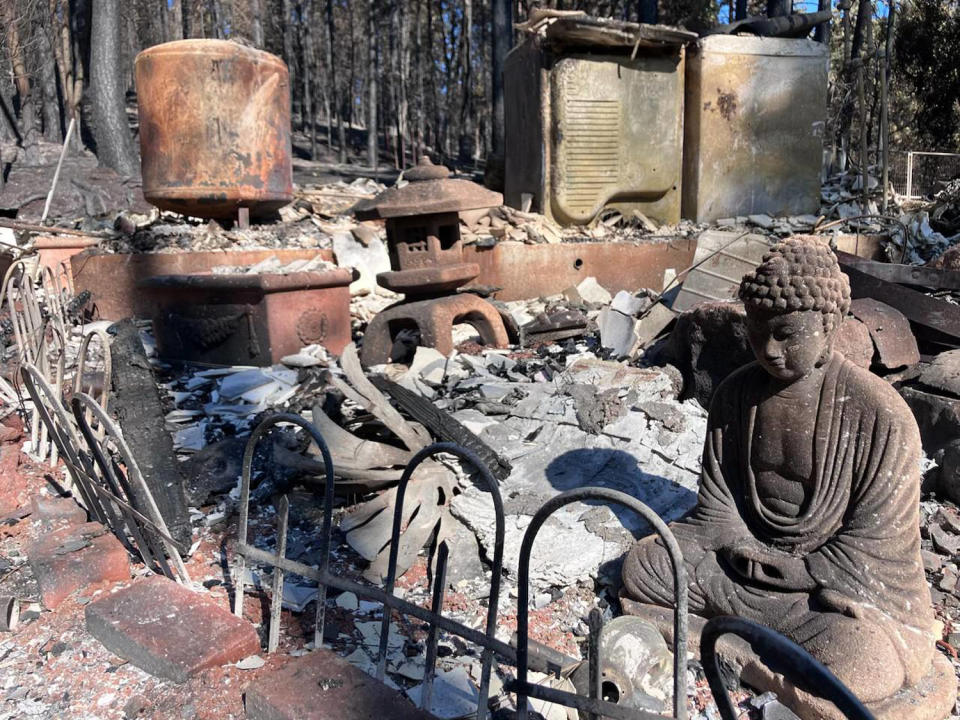

“People were blindly following and leading each other through a maze of forest roads,” Daneau said. It took them seven hours to get to Chico, usually a 20-minute drive on their normal route.
Daneau, Baker and Pero were part of the settlement with Pacific Gas & Electric Co., which owns the power lines that started the Camp Fire. Each said they have still received only a few relatively small payments and are frustrated with the process.
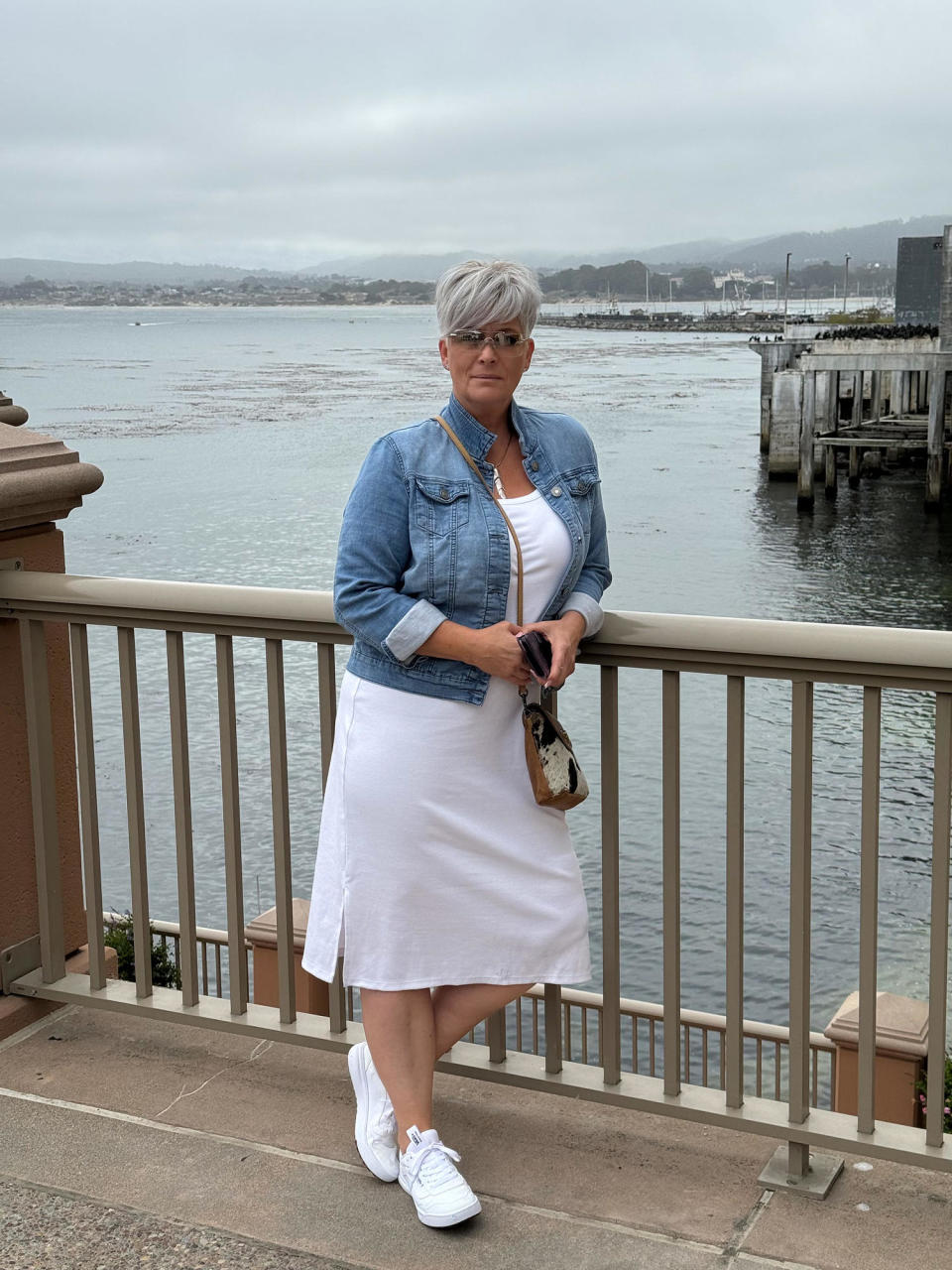

Baker, 59, is an Iraq War veteran who works for the Department of Veterans Affairs in Chico. During the Camp Fire, “the only reason I came out was because I grew up in this area and I knew the shortcuts and the back roads,” he said.
He planned to rebuild in Paradise, but “all the building materials and the current contractors, the price of everything started to go up exponentially,” he said. So he and his wife, Sylvia, bought a “transitional home” in Cohasset.
As the Park Fire approached, he narrowly escaped the flames a second time.
Now these families, twice victims of wildfires, know what awaits them.
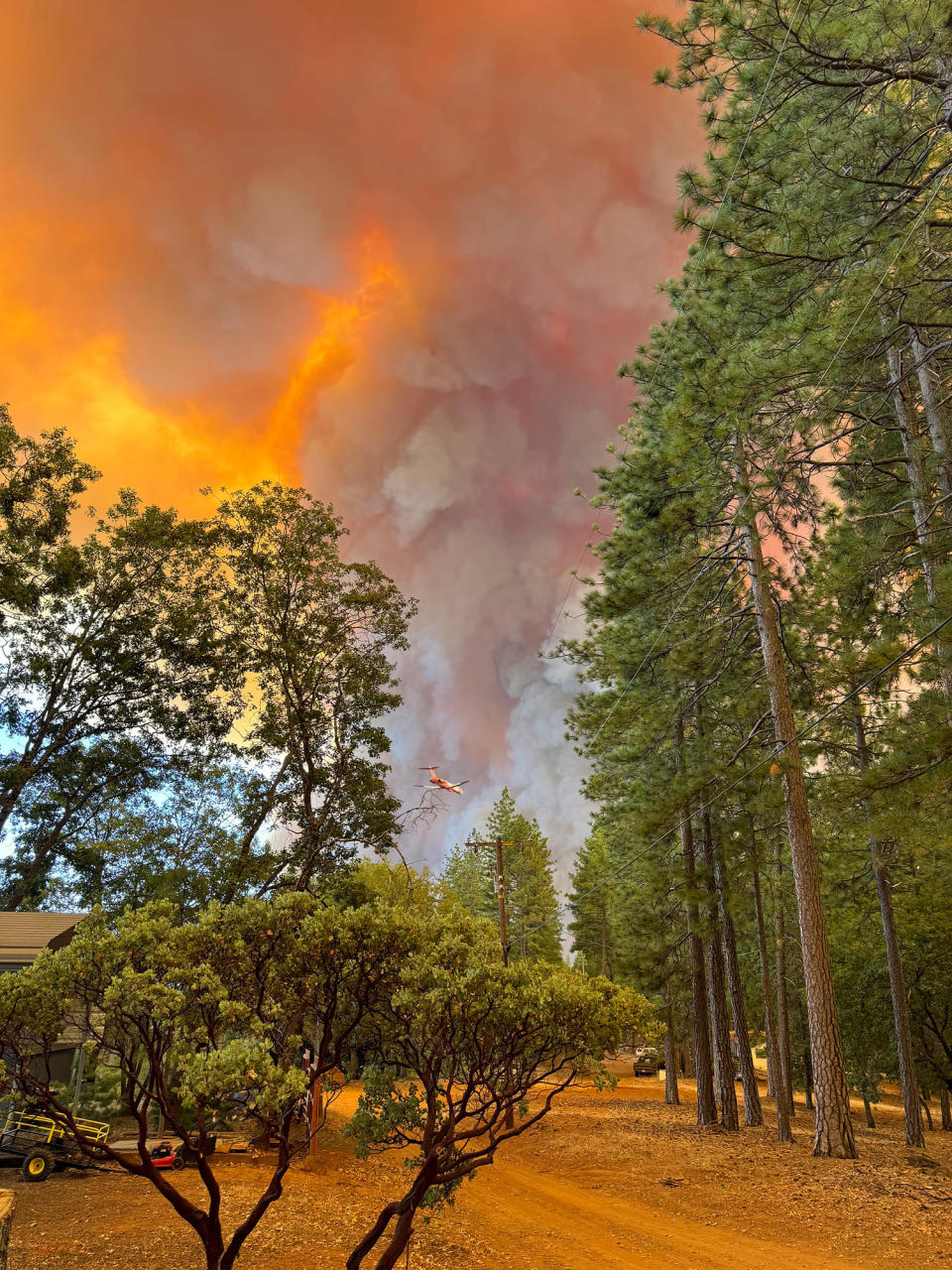

“You’ve lost everything. You have nothing. You’ve gotten through it mentally once. The second time you have to do it, you kind of know what to expect,” said Alex Wood, 26, who lost homes in both the Camp and Park fires.
The 2018 fire destroyed all of Wood’s belongings when he was just 21. He spent months sleeping in his ’99 GMC Sonoma or on friends’ couches. Finally, a family friend offered him a rental in Cohasset — a building that the Park Fire had leveled last month.
Wood purchased a trailer that he plans to tow to the burned property. He hopes to buy it and rebuild it.
“If it wasn’t for his family and his business, I don’t think I would have stayed in California,” Wood said.
Pero and his wife are currently considering their options, including moving.
“Given the drought, global warming and water issues in California, we are concerned about what California is going to look like,” he said.
Pero’s house was insured, but the Daneaus canceled their insurance when costs got too high. Daneau said it cost about $7,000 to insure their Cohasset home the first year and about $10,000 the next. When the bid went up to $12,000, “it became unachievable.”
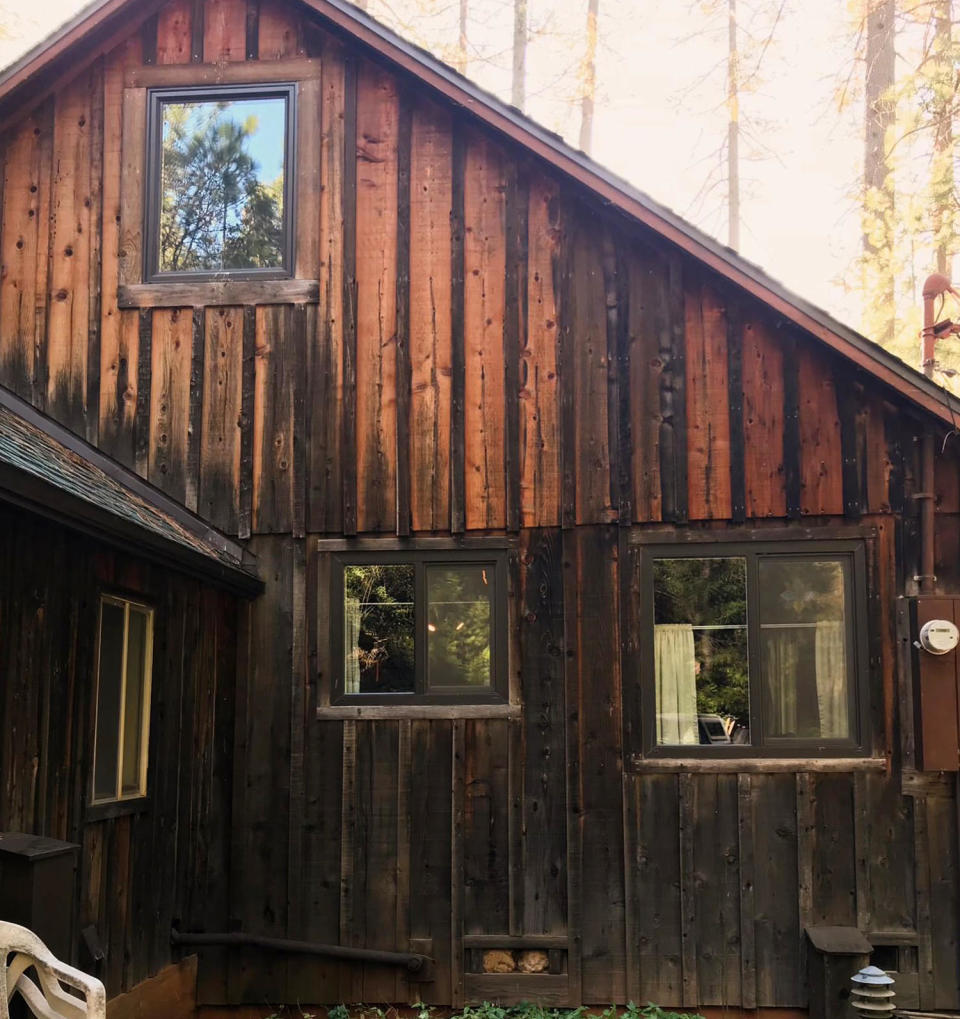

The couple is staying with Daneau’s father and doesn’t know what will happen next. They want to live closer to the coast but they won’t leave their children who have all settled nearby.
Their main priority, Daneau said, is to “get away from the fires.” “Even if it means living in the city, we will absolutely do that. We cannot put ourselves in that situation again.”
For Baker, generations of family have stayed in the Paradise area and he doesn’t want to leave. He’s in talks with a developer to buy a new home there.
He sees the risk as lower now that many trees have burned and the landscape has become more suburban. The city has new water systems and homes are built to modern fire codes and a sprinkler system.
Baker said he is grateful for the outpouring of support from the community.
“It takes humility to see yourself as a self-made man and sit on the side of the street without the home and property you had two hours ago,” he said. “You have to reevaluate and re-direct your efforts, prioritize and continue on your mission — and of course the mission is to live.”
This article was originally published on NBCNews.com